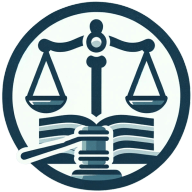In the labyrinth of legal matters, a legal consultant serves as a guiding light. However, the challenge lies in identifying the right one. This blog post aims to simplify this process for you. We'll delve into the key factors to consider, the questions to ask, and the resources to utilize in your quest for the perfect legal consultant. Let's embark on this journey together.
Understanding the Role of a Legal Consultant
A legal consultant is a beacon in the stormy sea of legal issues. They provide expert advice on a variety of legal matters. However, the role of a legal consultant is not limited to providing advice. They also assist in strategizing, managing legal risks, and ensuring compliance with the law.
Legal consultants often specialize in specific areas of law. These areas can range from corporate law to family law, intellectual property, and more. Understanding their role and specialization is the first step in finding the right legal consultant.
When you're clear about what you need from a legal consultant, you can start your search. Various resources can aid you in this process. Professional networks, online directories, and referral services are just a few examples. Remember, the goal is to create a shortlist of potential legal consultants who specialize in the area you require.
Evaluating the Expertise and Experience
Once you have a shortlist, it's time to delve deeper. The expertise and experience of the legal consultant are crucial factors to consider.
Expertise refers to the consultant's knowledge and skills in a specific area of law. You can gauge this by looking at their educational background, certifications, and the type of cases they've handled.
Experience, on the other hand, refers to the number of years the consultant has been practicing. It also includes the variety and complexity of cases they've dealt with. An experienced legal consultant can provide insights that a less experienced one may not.
However, expertise and experience are not the only factors to consider. You also need to evaluate the consultant's approach to work, their communication skills, and their ability to understand and meet your needs.
Assessing the Approach and Communication Skills
The approach of the legal consultant is a critical factor. It can significantly impact the outcome of your case. Some consultants take a proactive approach, identifying potential issues and addressing them head-on. Others may be more reactive, dealing with issues as they arise.
Communication skills are equally important. The consultant should be able to explain complex legal concepts in simple terms. They should also keep you informed about the progress of your case.
Remember, you're not just hiring a consultant. You're building a relationship. The consultant's approach and communication skills can greatly influence the quality of this relationship.
Checking References and Reviews
References and reviews provide valuable insights into the consultant's performance. They can reveal how the consultant interacts with clients, handles challenges, and delivers results.
When checking references, ask about the consultant's strengths and weaknesses. Also, inquire about their professionalism, reliability, and responsiveness.
Online reviews can also be helpful. They can provide a broader perspective, as they include feedback from a larger number of clients. However, be cautious. Not all online reviews are reliable. Look for patterns in the feedback rather than focusing on individual comments.
Considering the Costs
Cost is an inevitable factor in the decision-making process. Legal consultants charge in different ways. Some charge a flat fee for their services, while others charge an hourly rate. Some may also work on a contingency basis, where they receive a percentage of the settlement if they win the case.
It's important to discuss the fee structure upfront. This can help avoid misunderstandings and disputes later on. However, cost should not be the sole deciding factor. The cheapest consultant is not necessarily the best, and the most expensive one is not necessarily the most competent.
Making the Final Decision
After considering all these factors, it's time to make a decision. This decision should be based on a combination of objective factors (expertise, experience, cost) and subjective factors (comfort level, trust).
Remember, the right legal consultant is not just the most qualified or the most affordable. They're the one who understands your needs, communicates effectively, and works in your best interest.
Wrapping Up the Journey to Find Your Ideal Legal Consultant
The journey to find the right legal consultant may seem daunting, but with the right approach, it can be simplified. By understanding the role of a legal consultant, evaluating their expertise and experience, assessing their approach and communication skills, checking references and reviews, and considering the costs, you can make an informed decision. Remember, the goal is not just to find a legal consultant, but to build a relationship that will serve your legal needs effectively.

